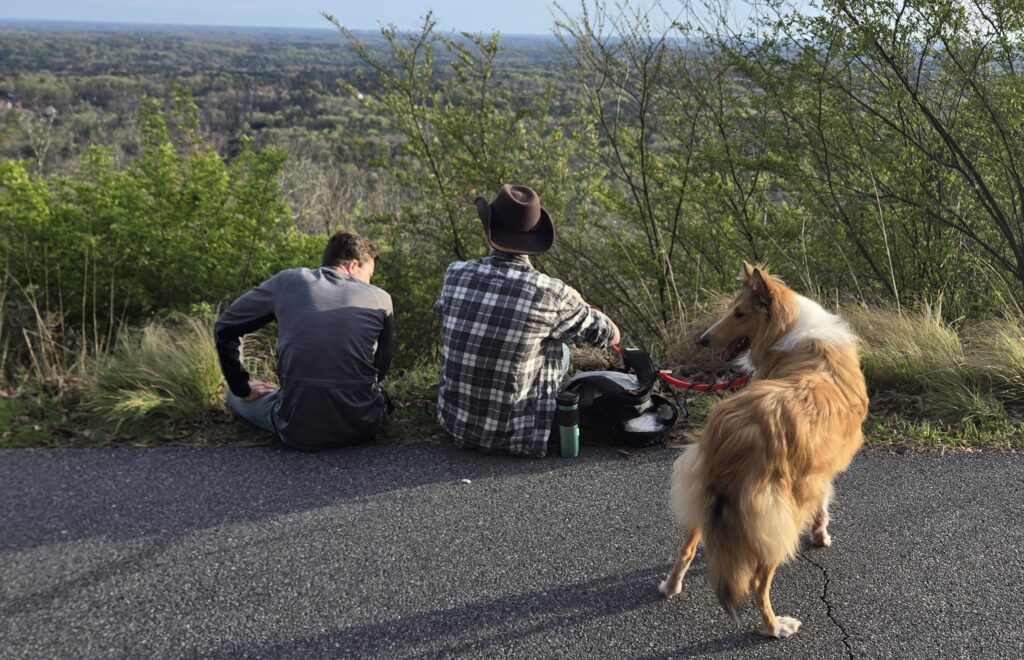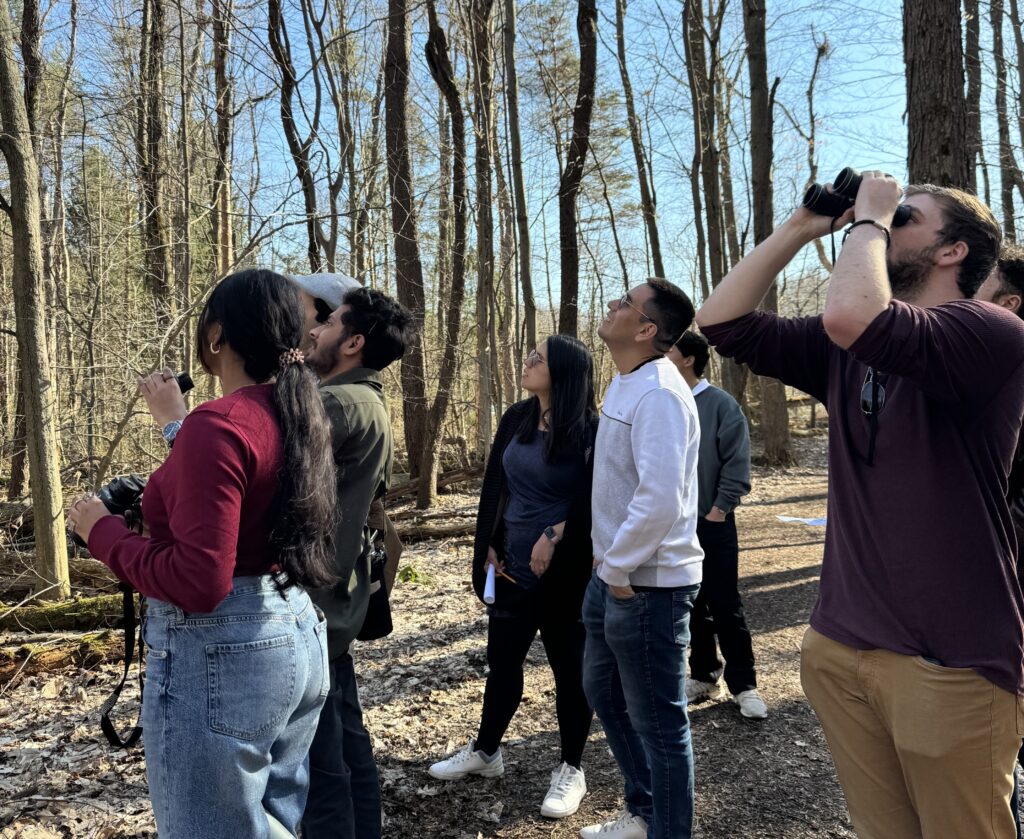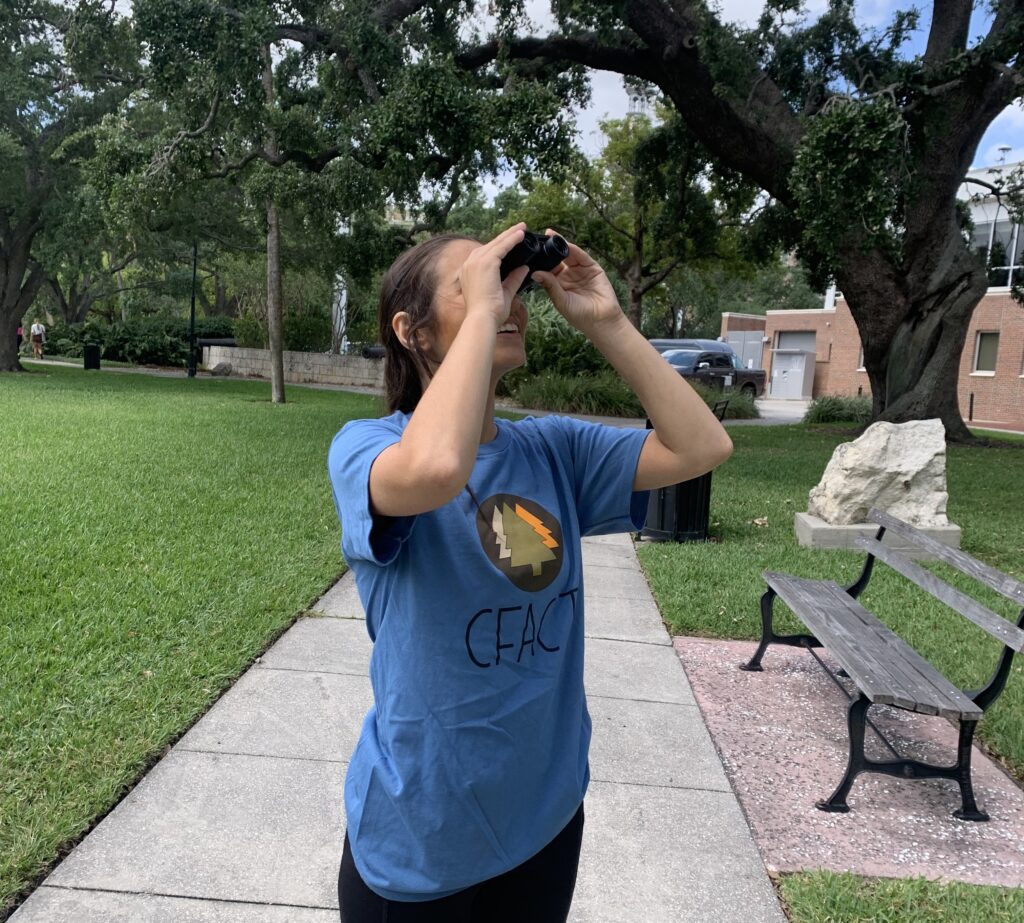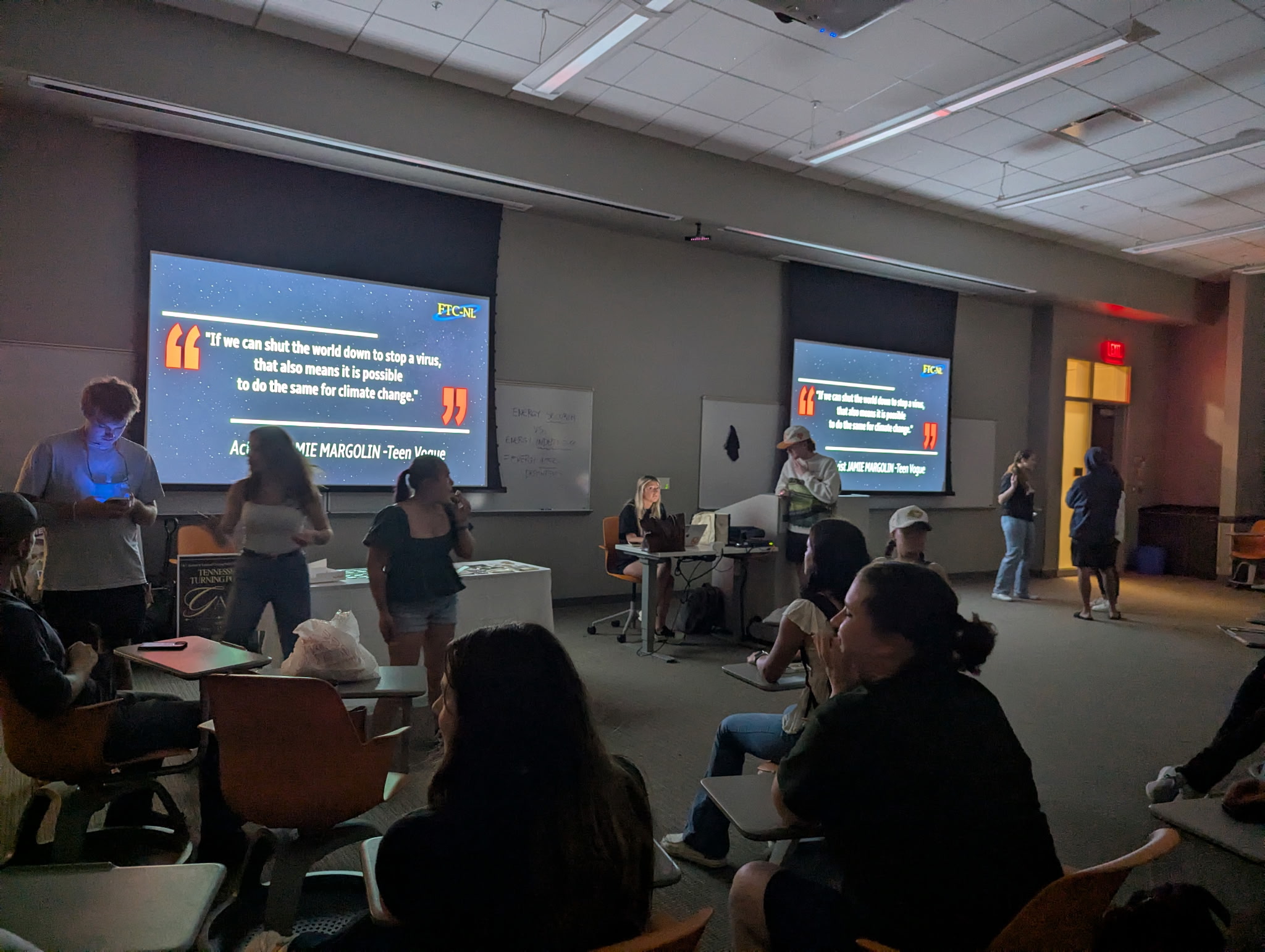This semester CFACT collegians from throughout the country took a break from their studies and hit the trails, binoculars in hand, with one shared mission: appreciating wildlife and sounding the alarm on the dangers posed by so-called “green” energy projects.

In Georgia, collegian Bryce McConnell attending Kennesaw University, led an exploratory hike up Kennesaw Mountain on March 25, joined by fellow students — and one enthusiastic dog named Evie. While admiring hawks, robins, and the sweeping mountain landscape, Bryce shared a sobering truth with his fellow students in attendance: the same landscapes teeming with life are threatened by sprawling wind and solar farms. These so-called clean energy projects often kill birds and destroy wildlife habitats, replacing thriving ecosystems with industrial scars.

Meanwhile in New York, students from SUNY College of Environmental Science and Forestry visited Beaver Lake for an up-close look at local birdlife, led by their fearless leader and CFACT Collegian Tatiana Romero. After a quick course at the visitor center on bird identification and calls, they hit the trails armed with binoculars and a bird scavenger hunt checklist. Birds flitted through feeders and woods alike, while students marveled at the surrounding biodiversity — a richness that, as Tatiana was quick to point out, is increasingly at risk from industrial-scale green energy development.

Finally, and farther south, collegian Alyssa Bianchi and her group at the University of Tampa explored the hidden natural treasures of Plant Park. As they wandered the grounds, binoculars trained on the sky, many participants were shocked to discover the diverse array of birds just in their immediate vicinity. “Wow, I literally had no idea how beautiful this park is with all this nature and all that is in it,” one student exclaimed. The tour didn’t just reveal overlooked beauty — it sparked conversations about how wind turbines pose a major threat to birds, and what steps the next generation can take to promote true conservation.
From mountainous terrain to coastal campuses, these outings made one thing clear: appreciating nature means more than just admiring it — it demands defending it. As students saw firsthand, the future of our feathered friends — and the ecosystems they call home — depends not on industrial sprawl disguised as environmentalism, but on genuine stewardship of the land.



